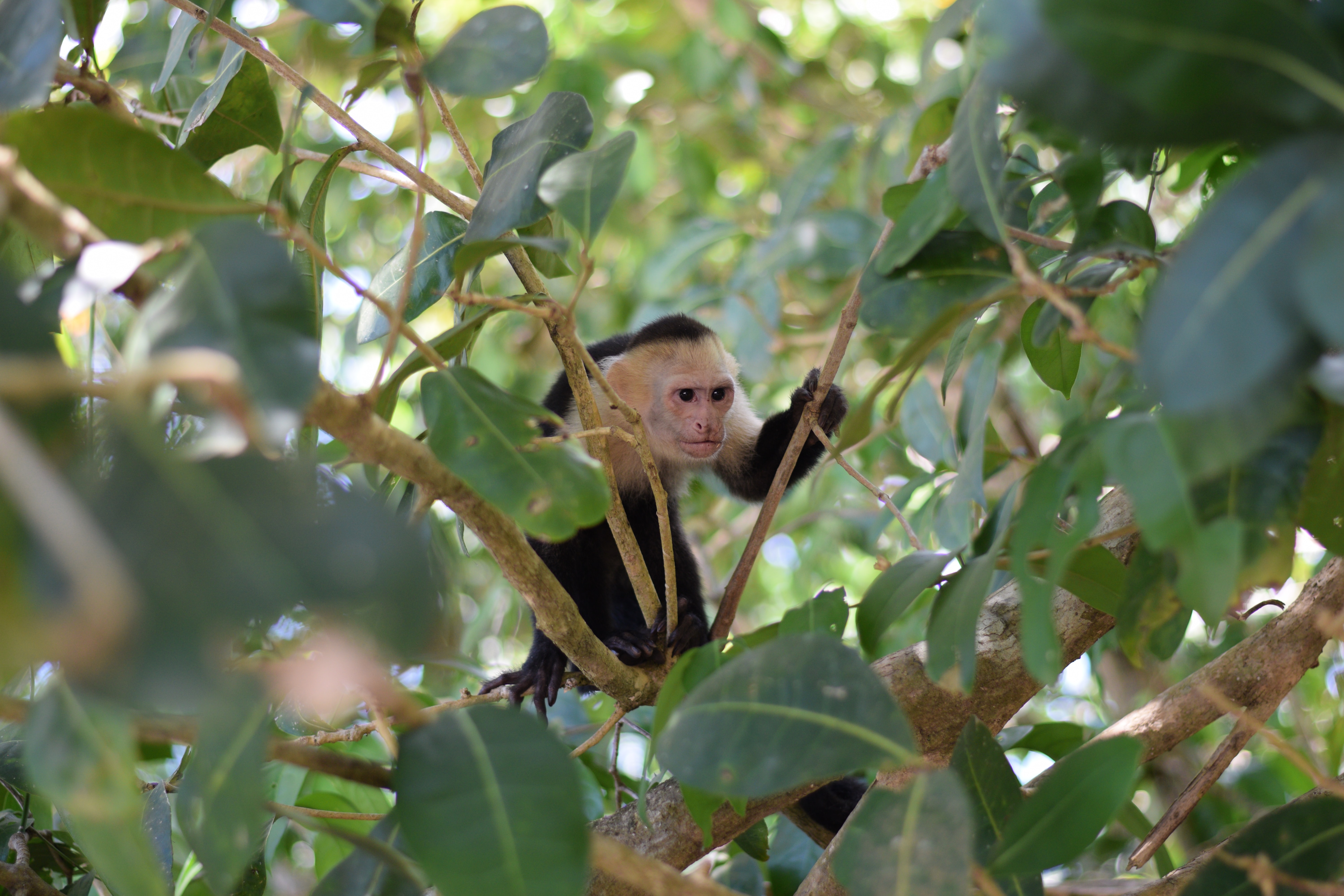BSc Anthropology student, Lauren Tibbetts tells us all about writing her dissertation entitled ‘Scratching the Surface: A Study of Anxiety Levels in Tufted Capuchin Monkeys (Sajapus apella) in differing behavioural contexts’. The project focussed on anxiety levels in tufted capuchin monkeys, how this is expressed through self-directed behaviours such as scratching and how this is changed by different behaviour circumstances.
Capuchin monkeys are very social animals, and the ones I focused on based at Iguazu National Park in Argentina, were certainly no exception. This species of non-human primates generally live in groups of varying sizes and a combination of both males and females.
They usually fall into a linear dominance hierarchy, meaning that there tend to be one or two individuals who are the most dominant. Those below this are often subjected to greater levels of aggression, less access to resources and thus this can lead to higher levels of anxiety, which also occur as a result of their precarious positions in the hierarchy.
Anxiety levels could also be heightened as a result of periods of co-feeding or the presence of tourists. These emotions are then typically expressed through innate actions directed towards oneself including body shakes, yawning and most commonly, self-scratching.
Similar behaviours can also be seen in humans such as beard-stroking and twiddling objects. The factors contributing to these self-directed behaviours are common amongst capuchins, and previous research in this area lead me to form my hypotheses and predictions. These were focused on the behavioural contexts of rank, proximity, co-feeding, aggression and tourist vs non-tourist areas.
To collect my data, I analysed a set of behavioural observations taken at Iguazu by a team that worked with my advisor in 2013. My analysis took the form of organising the data to extract the information I needed and calculate the percentage of time each individual capuchin spent scratching in each of the behavioural contexts (as described in my hypotheses). I was also due to originally make comparisons to anxiety levels in capuchins in captivity and spent a day observing the behaviours of the capuchins there.
This was done by focusing on one individual at a time and recording all the behaviours they engage in during this period and noting them on an app, for continuous sampling. I also did instantaneous sampling, in which I recorded what the focal subject was doing at a specific interval (e.g. every minute), often in relation to other individuals around them. Unfortunately, this data collection was cut short due to covid restrictions set out by the university and the government, so I continued the study focusing only on the data collected in the wild.
I really enjoyed this project; learning and writing about something that I am passionate about has been a rewarding experience and a great way to round up all of the knowledge I have accumulated over the last three years.
It has been stressful at times as I have encountered a few obstacles during the process, which were definitely not helped thanks to covid, but nonetheless, it has been a great learning experience. It also provided me with the opportunity to work with some fantastic academics, such as my advisor who provided endless advice and support throughout.
The most interesting part of this research was discovering the similarities between anxiety in human and non-human primates, which occur as a result of the similarities in brain complexity. Anxiety is clearly common in humans, and my research demonstrated that it is also common amongst non-human primates and can be expressed in very similar ways.
“If you find yourself writing a dissertation in the future, regardless of the topic, I would advise you that preparation is key.”
You can never be too organised to take on a project as monumental as this, and it will really pay off later on when it comes to writing up and finalising it. The feeling of completing the dissertation was certainly different to completing any other assignment. I felt a real sense of pride as the culmination of three years of work and particularly those concentrated into the dedication of the last 9 months of work.

